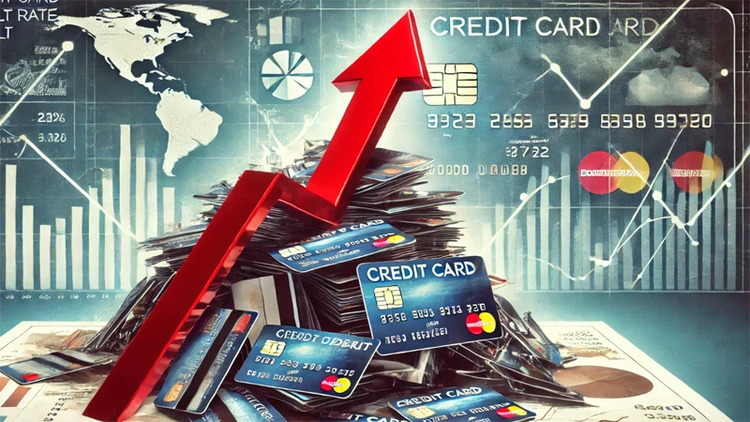Many Americans are starting 2025 carrying unmanageable credit card debt. The credit card default rate has hit its highest level since 2010, as lenders wrote off $46 billion in seriously delinquent loans in the first nine months of 2024.
According to an analysis by the Financial Times, that’s a 50% increase over the same period in 2023. While economic indicators suggest a strong U.S. economy, the experts we consulted say it is not a great economy for millions of Americans.
“High-networth individuals are not feeling the pressure as much as Main Street, due to the wealth gap, having positions in cash, alternatives, and equities in a proper mix for their risk tolerance, said Marcus Sturdivant Sr., an advisor at Tristate Financial Advisors.
Sturdivant said high-income households also have the option of “trading down,” and he cites a recent report showing earners making more than $100,000 a year shifting to Walmart and away from Target.
Still feeling inflation’s impact
Antwyne DeLonde, a former financial advisor and founder and CEO at VisionX, says the surge in credit card defaults highlights just how uneven the playing field has become. He says people are still feeling the impact of inflation.
“Rising costs of essentials, paired with stagnant wages for many, are pushing lower- and middle-income families deeper into debt,” DeLonde told ConsumerAffairs. “Meanwhile, those with access to investments, higher-paying jobs, and generational wealth continue to thrive.”
Jonda Lowe is a veteran financial advisor who agrees that many households have not been able to cope with inflation. But she also sees a demographic factor that has led to massive credit card debt.
The demographic factor
“Segment the population by age and you will see vast differences in financial independence,” she told us. “The younger generation is bombarded with pre-approved credit cards often before they graduate college, which in my opinion should be illegal.
“For the most part, these kids have not learned to be financially responsible. Add to that the fact that it is becoming harder for college graduates to get jobs after graduation as our older employees are not exiting the workforce in their mid-60s because they can't afford to retire.”
Lowe says there is an “appalling” lack of financial literacy education being offered in schools, which could help struggling consumers better cope with challenging financial conditions.
“Financial literacy is a critical part of the solution,” DeLonde added. “Many people simply don't have the tools or knowledge to navigate high-interest debt or build sustainable budgets.”
Sturdivant not only advocates financial literacy as a solution, he is a volunteer for a financial literacy nonprofit in the Charlotte area, where he teaches a free course.
“The lack of financial literacy plays a huge role in any default decision,” he told us. “Einstein stated that compounding interest is the strongest force in nature. That blade cuts both ways, if people are saving and compounding those gains it is beautiful, but on the flip side, paying minimum balances or not paying at all will have detrimental consequences on the growing balance.”
